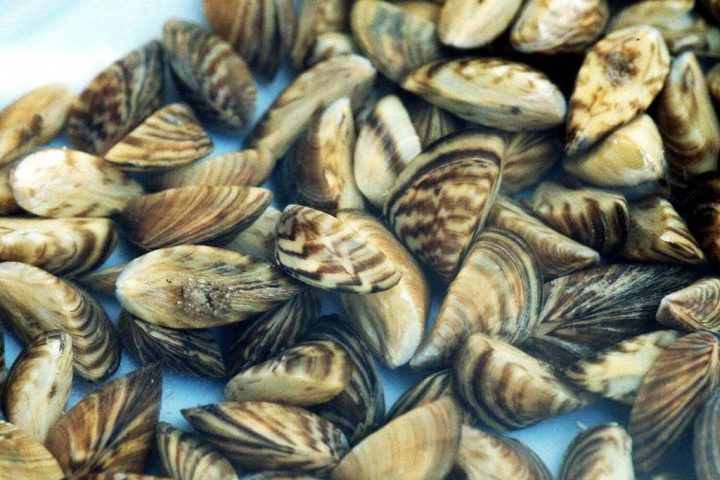Although strict measures were put in place this summer to keep zebra mussels out of Manitoba’s Clear Lake, the invasive species has found its way into Riding Mountain National Park regardless.

Dameon Wall of Parks Canada told 680 CJOB’s The Start that water samples from the lake’s main launching area, Boat Cove, tested positive for zebra mussel DNA.
“We started getting those test results back right at the end of boating season,” Wall said.
“That prompted us to do a physical search, where unfortunately we did turn up some live zebra mussels.”
While there had previously been the presence of environmental mussel DNA — which was inconclusive as to whether zebra mussels were actually present in the lake — near the boat launch, Wall said the live mussels hadn’t turned up until now.

As part of Parks Canada’s efforts to curb the spread of the invasive species, new rules were put in place banning any boats or trailers that had been on other lakes this past summer from using Clear Lake.

Get breaking National news
Qualifying boats and trailers needed a special tag, affixed by park staff, to be able to use the lake after being properly inspected and decontaminated.
Unfortunately, that doesn’t seem to have been enough.
Wall said the mussels are so harmful because of the way they filter food sources from the water.
“They outcompete a lot of other organisms for food,” he said.
“They basically just remove all of the food supply that would be in there, and that gets trapped in their shells and removed from the food chain, so they do affect the water ecosystems pretty significantly.”

As far as next steps, Wall said it’s not clear what the best course of action will be now that mussels have been identified in the lake, a popular summer getaway spot in the national park, located north of Brandon.
“We’ll be having conversations with other levels of government — with some our friends in the federal family as well — also need to hear from people around the community. We’re working closely with First Nations,” he said.
“No decisions have been made — the short answer is we don’t know what happens next. We’re going to figure that out.”









Comments
Want to discuss? Please read our Commenting Policy first.